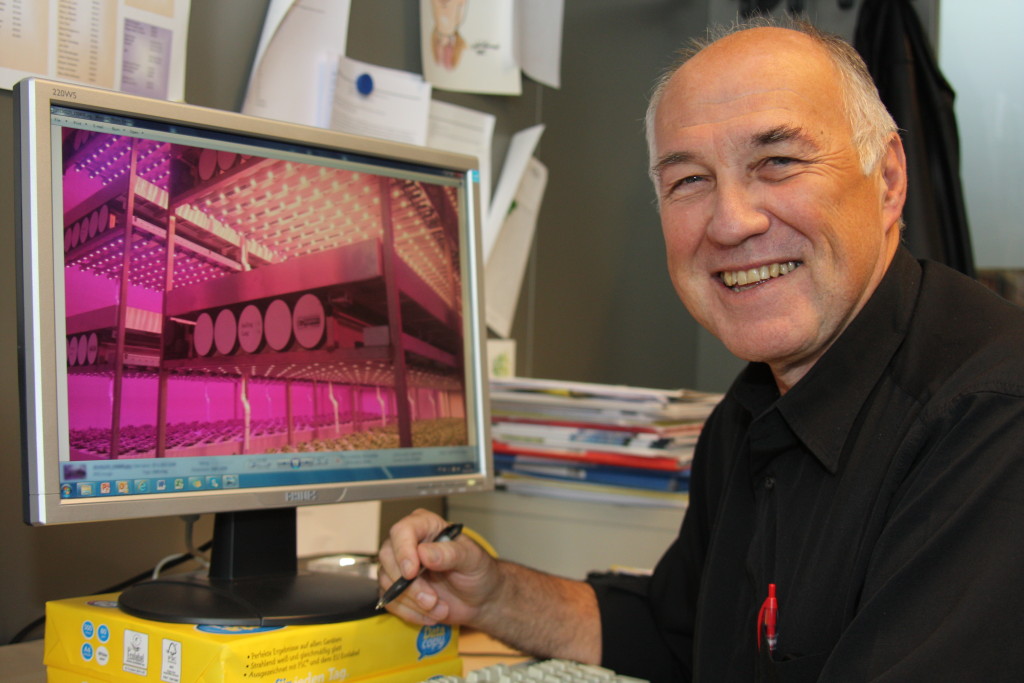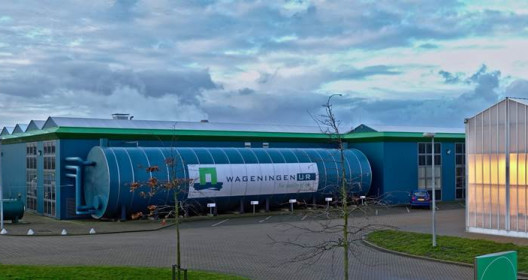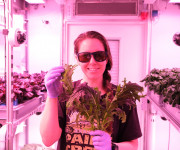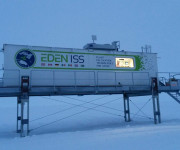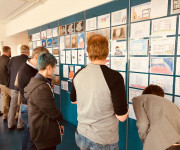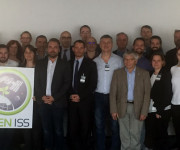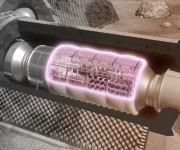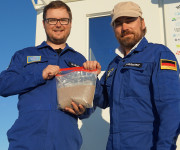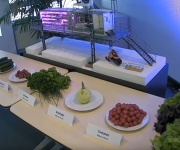Interview Tom Dueck
This is the first of a series of posts in which I will interview some of our many international EDEN ISS team members. Today’s interviewee is Dr. Tom Dueck researcher at Wageningen University and Research, the Netherlands.
Tom Dueck is a plant ecologist with a PhD in Plant Ecophysiology and Ecotoxicology. He is an expert in the field of light and artificial lighting in horticulture, with some 20 years of experience in integrating the total light environment and air quality with plant growth. He has worked on a large number of projects studying the effects of diffuse light as well as LED inter-lighting and top-lighting on greenhouse vegetables. He is regularly consulted on various aspects of light and lighting in greenhouses by international greenhouse growers. He has experience in monitoring responses to plant stress and has published more than 100 scientific papers, reviews and conference proceedings as well as more than 225 articles in horticultural journals.
Paul: How does your daily work-life look like?
Tom: I work at 2 locations, in Wageningen where my office is, and in Bleiswijk where our greenhouses are located and close to the large greenhouses in the western part of the Netherlands. When I leave for work I think that I have a reasonable idea of what I will do at work, and am almost always surprised at the end of the day how different my work-day was than how I thought it would be. The many interactions with colleagues, emails and telephone calls from growers and research partners have a large influence on my work-day.
Paul: What can you tell us about your work on EDEN ISS? What are you responsible for?
Tom: Together with my colleagues here at Wageningen UR, I am responsible for a large part of the ‘plant’ component in the EDEN ISS project. In the first place, together with Cecilia Stanghellini and a number of students, we created a framework model with which we were able to make a choice of crops that would be suitable for growth in the Future Exploration Greenhouse at the Neumayer III station, as well as in the ISS. In order to use the model, we needed a number of plant growth characteristics that were not always known in an FEG or ISS setting, so we had to estimate them. In the next work package, we will perform a large number of experiments to test the optimal growth conditions and acquire numbers for the plant growth characteristics we estimated earlier. With them, we expect that the cultivation of crops in FEG will go more smoothly and we will better be able to predict sowing moments of the crops so that the crew will have a more or less continuous flow of fresh food.
Paul: What fascinates you about EDEN ISS?
Tom: Basically, the idea that the crew members will depend on a cultivation system so different from that we know and use in greenhouse horticulture. It has to be closed cultivation system, always accounting for the i/o of air, nutrients, water and energy. A new system, but hopefully, with large spin-offs for the cultivation in greenhouses as we know it now.
Paul: You are usually working on terrestrial horticultural research. How is the work on EDEN ISS different from those projects?
Tom: In greenhouse horticulture, we are very much aware of energy and waste issues, but are not yet required to remain within very strict borders with regard to energy, nutrition and waste. In the EDEN ISS project, these issues are our biggest challenge and have to be adhered to. The other difference is scale: our crops in EDEN ISS entail areas of 0.5-2 m2, whereas our crops in horticultural research use areas of 100-200 m2 and in practical situations up to 2 hectares.
Paul: You have a lot experience in running greenhouses on Earth. Would you like to work in a greenhouse on Mars?
Tom: It’s a good thing that this question is not very realistic at the moment, as although the idea of working in a greenhouse on Mars with its restrictions and constraints is challenging, I don’t think I would like to actually work there. It’s a bit too futuristic for me yet.
Paul: Do you have a favorite crop grown in greenhouses?
Tom: Of course, small cherry tomatoes!
Paul: And what do you do with them?
Tom: I eat 1-2 trusses on the drive home, the others go in the salad or are grilled in oven with garlic and herbs.
Paul: Thank you for the interview, Tom!
Tom: Thank you Paul. It was a pleasure.

